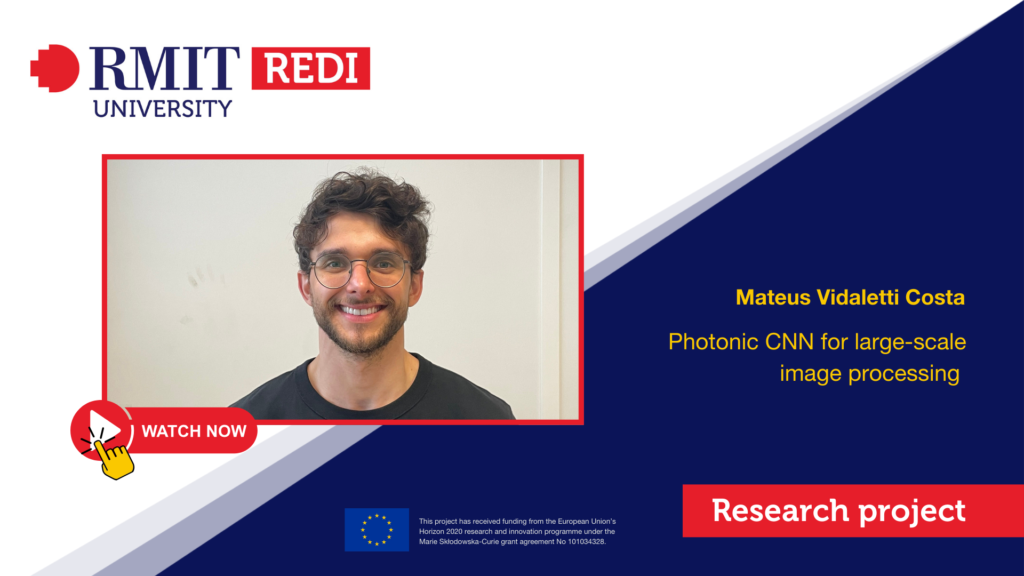Convolutional Neural Network (CNN) algorithms have been pushed to the edge in a race to decrease training time and achieve higher accuracy scores. The cost of implementing these state-of-the-art architectures includes the necessity of using powerful processors, which, however, are limited by clock frequency, memory access time, and mainly, power consumption. Photonic CNNs (PCNNs) take advantage of the many degrees of freedom from light to transfer data and perform multiply and accumulate (MAC) operations, emerging as a promising candidate to accelerate the development of neuromorphic computing and overcome the constraints presented by their electronic counterparts. Nevertheless, one of the main limitations of state-of-the-art PCNNs is the need to convert data between the analog and digital domains, demanding extra time and energy to perform convolution and classification tasks.
The aim of this project is to simulate and perform experimental activities with PCNNs that use analog data from a Distributed Acoustic Sensing (DAS) source, a technology that enables continuous, real-time measurements along the entire length of a fibre optic cable. Experimentation will be conducted at RMIT, and simulations will be carried out at INL/RMIT as Photonic Convolutional Neural Networks for DAS processing, with performance projected to optimal technology parameters in order to achieve sub-nanosecond image classification.
Watch a video about Mateus’ project:
